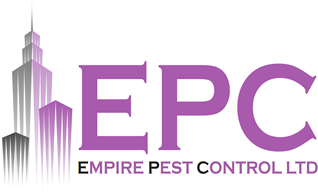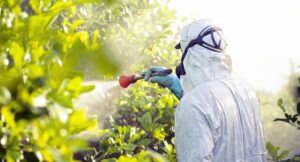Pest control is a common concern for homeowners and businesses alike. When unwanted critters invade our spaces, it can be tempting to reach for chemical pesticides as a quick and effective solution. However, the use of synthetic pesticides comes with several downsides, such as harming beneficial insects, polluting the environment, and posing health risks to humans and pets. This is where organic pest control comes into play. In this article, we will explore the many benefits of organic pest control methods and why they are gaining popularity.
Organic Pest Control
Organic pest control refers to the use of natural and environmentally friendly methods to manage and eliminate pests without reliance on synthetic chemicals or harmful pesticides. These methods focus on promoting ecological balance and biodiversity, allowing nature to regulate pest populations naturally. Organic pest control techniques are designed to be safe for humans, animals, and beneficial insects while effectively managing pest infestations.
Benefits of Organic Pest Control
There are more benefits we can get when we use organic pest control methods in the proper way. Here, we enlist the different benefits associated with organic pest control methods.
Environmentally Friendly
Organic pest control practices are eco-friendly, as they do not harm the environment or disrupt the natural balance of ecosystems. Chemical pesticides can contaminate soil, water, and air, leading to long-term environmental damage. Organic methods, such as biological control and natural predators, work with nature to control pest populations, ensuring a sustainable and harmonious environment.
Preserves Beneficial Insects
Chemical pesticides do not discriminate between harmful pests and beneficial insects, often killing off helpful organisms like bees, butterflies, and ladybugs. Organic pest control methods target specific pests while preserving beneficial insects. For example, encouraging natural predators like ladybugs to control aphids in your garden helps maintain a healthy ecosystem without harming other essential insects.
Promotes Soil and Plant Health
Chemical pesticides can leach into the soil, disrupting its natural composition and harming plants. Organic pest control methods, such as companion planting and natural repellents, help maintain soil fertility and promote plant health. Healthy plants are better equipped to resist pest infestations, reducing the need for extensive pest control measures.
Encourages Sustainable Agriculture
The adoption of organic pest control practices supports sustainable agricultural methods. By reducing reliance on chemical pesticides, farmers can promote biodiversity, conserve natural resources, and maintain the long-term productivity of their land. Sustainable agriculture benefits not only the farmers but also consumers by providing healthier and safer food options.
Safe for Humans and Pets
One of the most significant advantages of organic pest control methods is that they are safe for humans and pets. Chemical pesticides often contain harmful toxins that can pose health risks to you, your family, and your beloved animals. Organic pest control methods, on the other hand, use natural ingredients, making them non-toxic and safe for everyone in your household.
Prevents Pest Resistance
Pests have a remarkable ability to develop resistance to chemical pesticides over time. When exposed to the same pesticides repeatedly, pest populations can evolve and become immune to these chemicals, making it challenging to control them effectively. Organic pest control methods utilize a diverse range of techniques, making it difficult for pests to adapt and develop resistance. This approach ensures long-term pest management without the risk of resistance issues.
Final Thoughts
Organic pest control methods offer a host of benefits, ranging from human and pet safety to environmental preservation and sustainable agriculture. By choosing organic pest control practices with the help of pest control services, individuals and businesses can contribute to a healthier planet while effectively managing pest populations.





